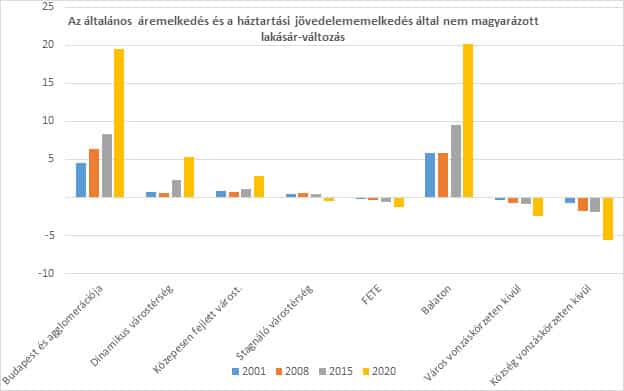Article: The effect of the local economic context and local public services on financial satisfaction among youth in European cities by Márton Megdyesi and Ábel Csathó
The post-2008 economic recovery period has seen varying degrees of improvement in the well-being of young individuals across different countries, regions, and cities of the EU. This study contributes to the literature on the geography of well-being by examining the impact of urban economic contexts on the subjective well-being of youth in Europe, a topic that has received limited attention so far. Specifically, we investigate how the local economic context has affected financial satisfaction among the young (15–35 age group) in European cities during the recovery period after the economic crisis. We study whether living in a city with better opportunities in the labor market, on the housing market, or with better local services (e.g., education or health care) affect financial satisfaction among the young. We carried out multilevel analysis of financial satisfaction among young adults on data from the Quality of Life in European Cities survey (years 2012, 2015, 2019), which asks about aspects of quality of life among a representative sample of the population in a large number of cities in EU Member States. Overall, the results suggest that a better labor market context (where it is in general easier to find a job) has a statistically significant positive effect on financial satisfaction among the young. Our results also show that satisfaction with the financial situation among young adults is significantly higher in cities with a higher quality of local social services. On the other hand, we have found only small (and statistically non-significant) contextual effect related to the local housing market.
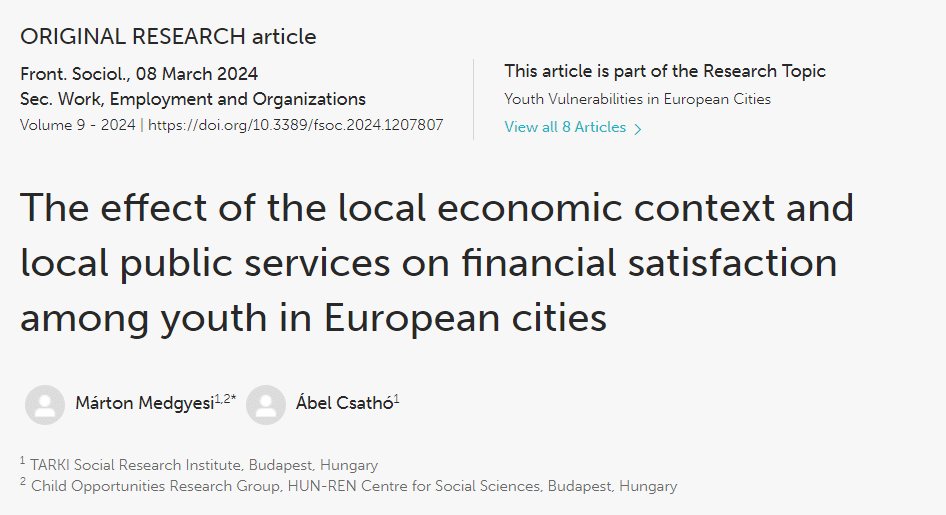
Article: Mechanisms linking economic potential of European cities to housing inequalities of young people by Éva Gerőházi, Nóra Katona, Sándor György Kollár
This study aims to identify and present mechanisms through which the economic potential of European urban areas is converted into social inequalities among the young population in the field of housing. The role of national and local housing systems in this conversion is analyzed through the examples of Amsterdam, Tallinn, Chemnitz, and Pécs. These four cities represent four major ideal types with different levels of economic power and housing welfare structures. The article, through these case studies, initially delineates the ramifications of increasing housing demand arising from population growth and varied wage structures in cities experiencing economic prosperity. It also delves into the repercussions of population decline and financial constraints in cities with weaker economic foundations. Subsequently, it evaluates the efficacy of local housing policies in addressing housing affordability and spatial segregation, considering the presence of either a unitary or dual public housing sector. The article’s conclusion underscores that local housing policies are tightly bound to national housing concepts, legislation, and resources, which constrains their capacity to adapt measures to the changing dynamics of economic development. The primary source of information underpinning this analysis is derived from research conducted in these urban areas as part of the UPLIFT project, funded by the European Commission within the framework of Horizon 2020.
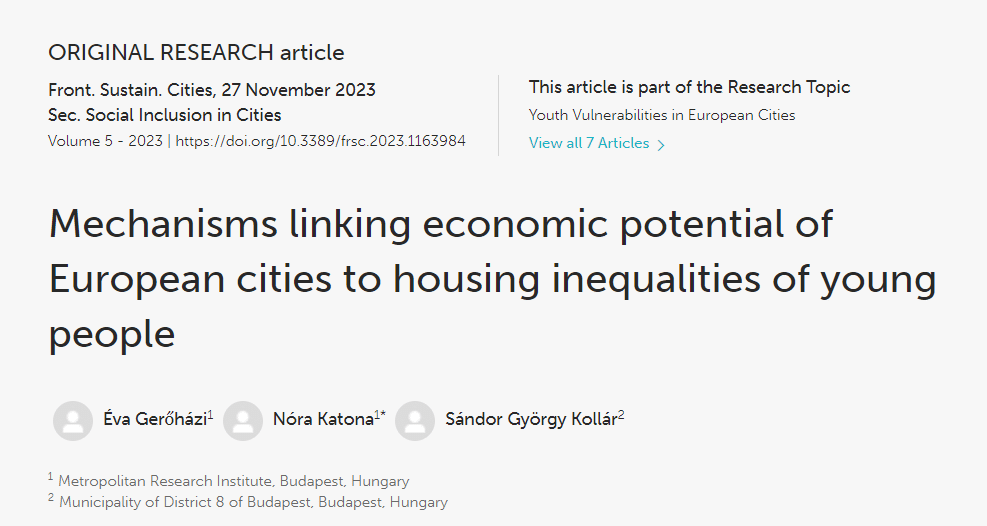
Article: Access to homeownership in decline—rising housing inequalities for young people in the neoliberal housing market of Tallinn by Anneli Kährik and Ingmar Pastak
The current housing affordability crisis, driven mainly by the financialization of housing and the government’s retrenchment of social policies and provision of affordable housing, have affected growing inequalities in access to housing. The crises have hit young people especially hard. The recent trends call for systematic studies on the mechanisms generating such intergenerational inequality, considering the specifics of the prevailing housing regimes. Housing affordability in Tallinn has decreased due to fast-growing housing prices, as a result of an ultra-liberal housing regime, exemplified by housing financialization, capital accumulation, low level of governmental interventions and an overall increase in social inequalities. Based on EU-SILC data, it is shown how the recent trends during the decade between 2010 and 2020 have negatively impacted young people’s access to homeownership—access has been greatly reduced for young cohorts, and it has become more differentiated, based on the socio-economic and labor market performance of households, as well as intergenerational transfers. Young households are increasingly residing in private rental dwellings, and many still rely on parental housing until their 30s. Rental housing, as compared to homeownership, has fewer advantages compared to homeownership—it brings no capital gains and is less secure, and rental stock tends to be located unevenly across urban space and to be in slightly worse condition compared to owner-occupied housing. This positions young people in an unfavorable position in the perspective of their housing career, and this can have severe consequences on their social inclusion.
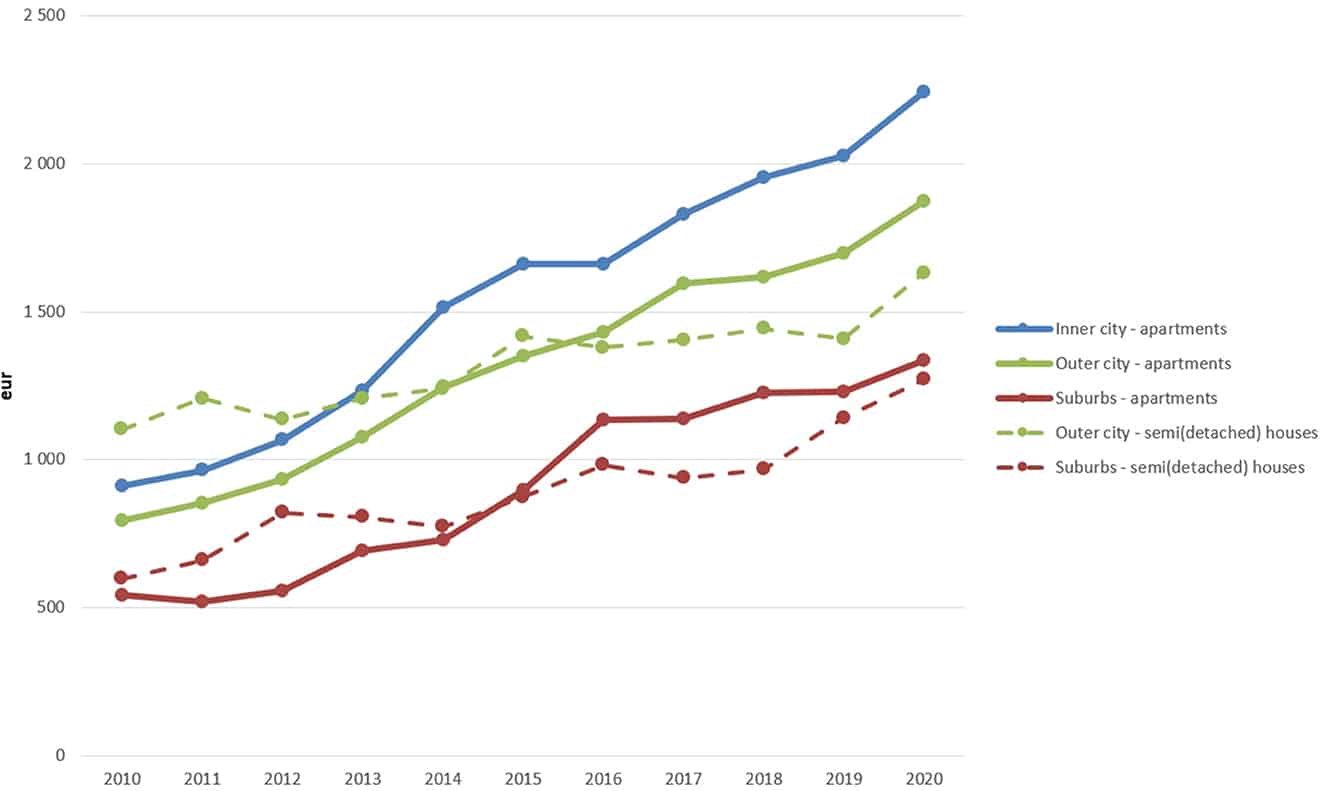
Article: 'NEET-youth in a mesh of network of services and programs: how to ensure better support to young people who are not in education or employment?' by Mai Beilmann, Sirje Otstavel, Heidi Paabort, Kerli Kõiv
Based on expert interviews, this article provides insights into how professionals working with young people perceive the most vulnerable NEET-youth in Tallinn, the root causes of their problems and the cooperation between institutions and professionals working with NEET-youth. The article concludes with the recommendations for organising services in a manner that would better facilitate reaching the young people in difficult life situations.
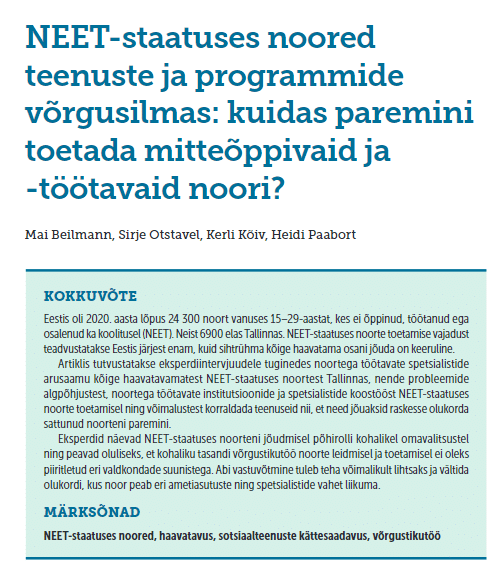
Article: 'State level agreed-upon factors contributing more effective policymaking for public sector services for effective local-level work with NEETs' by Mai Beilmann and Heidi Paabort
Supporting young people who are not in education, employment or training (NEET) represents a new global policy challenge. There is a need to increase knowledge about policymaking connected to multidisciplinary approaches in order to provide better services for NEET youth. This study focuses on interpretations by specialists in the youth field in Estonia regarding the current public policy support system for NEETs and the associated factors affecting the achievement of policy goals.
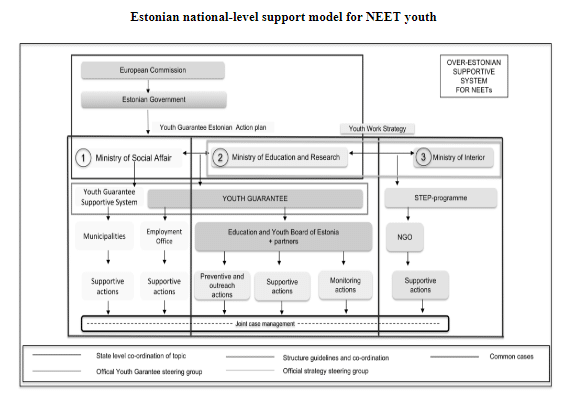
Article: 'Enhancing Young People´s Individual Skills and Knowledge. The Case of Vulnerable Youth Participating in Co-Creative Policymaking in Housing in the City of Barakaldo by Usue Lorenz'
This research aims to explore in what extent young people can enhance their individual skills, knowledge, attitudes, and behaviors by taking part in urban policymaking co-creation processes. The empirical study conducted within the UPLIFT project is based on two main theoretical influences: co-creation and youth participation in policymaking and the capability approach.
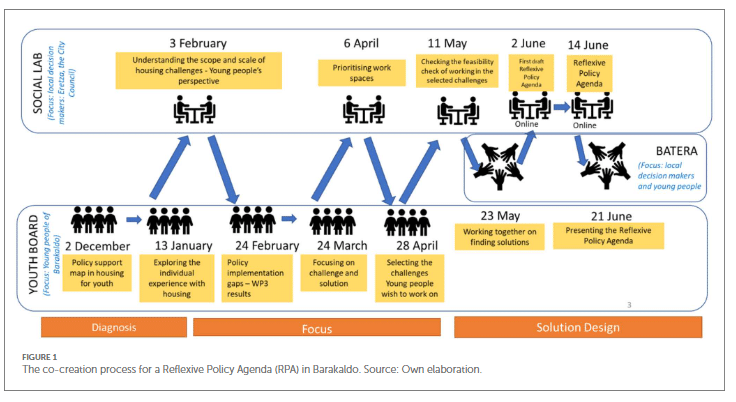
Article: 'Policy Responses to Real World Challenges Associated with NEET Youth: A Scoping Review.' by Heidi Pabort, Mai Beilmann, Paul Flynn, Claudia Petrescu
In the last decades, young people not in education or employment have become the focus of policy-makers worldwide, and there are high political expectations for various intervention initiatives. Despite the global focus, there is currently a lack of systemic knowledge of the factors supporting policy-making. Therefore, using scoping review methodology, a systematic literature overview of research findings in 2013–2021 on young people not in education or employment will be provided.
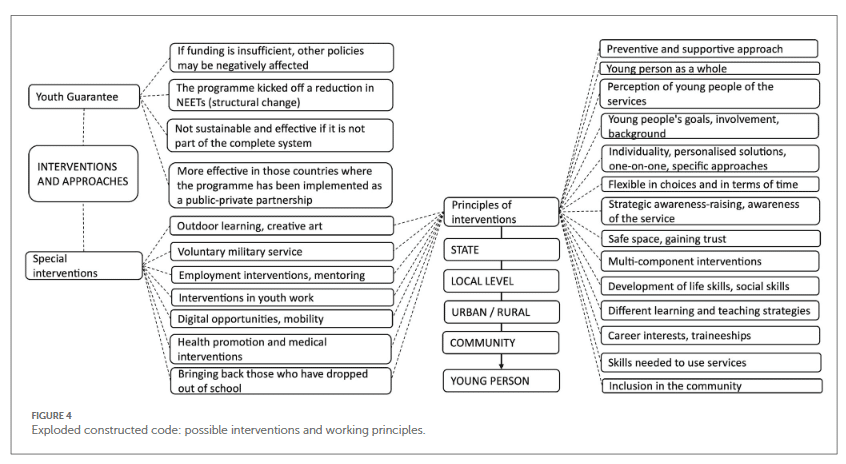
Article: Young people's strategies for navigating education, employment, and housing: a case study from Corby UK by Jenny Barke; Victoria Boelman, Vinkha Khairunnisa, Salma Shah
This paper reports the findings of research activity carried out as part of the UPLIFT project in Corby, United Kingdom. The project aimed to understand young people’s experiences of education, employment and housing, and determine how young people navigate these domains, make choices and develop strategies within what is available to them. Through understanding the opportunities and strategies that young people employ across these domains, our aim was to consider how young people might engage locally to co-create a reflexive policy agenda.
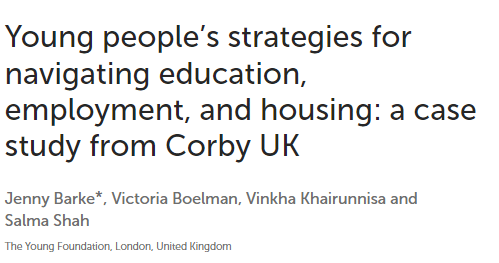
Article: Housing policies by young people, not for young people. Experiences from a co-creation project in Amsterdam by Joris Hoekstra and Martina Gentili
This paper examines the results of said policy co-creation process in order to evaluate its methodology as well as its impact on the participating actors – young people in particular – and on the policymaking approach. We analyze the benefits and limits of this type of participatory practice in addressing housing issues and try to draw conclusions on its applicability in a larger context.
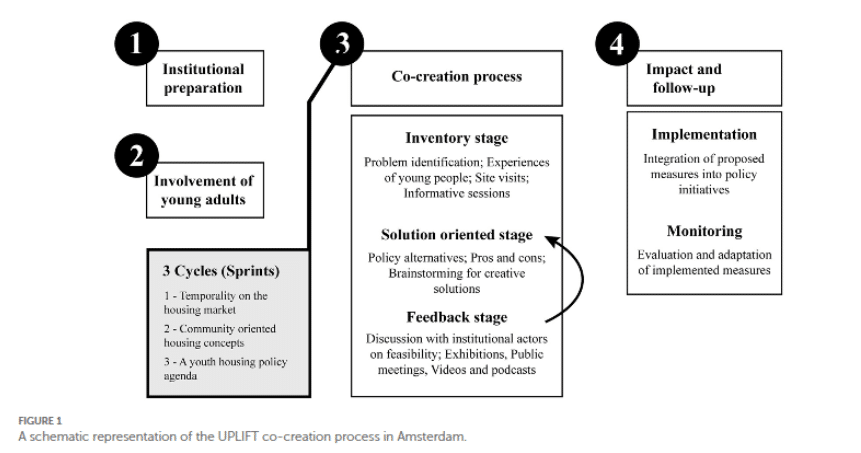
"Housing co-creation for tomorrow’s cities" Conference
On 8-9 December 2022 the international conference “Housing co-creation for tomorrow’s cities” took place at the Institute of Urbanism and Alpine Geography of the University Grenoble Alpes. Joris Hoekstra and Martina Gentili from TU Delft presented the housing related results of the UPLIFT life course interviews with young people, and introduced the co-creation process as a potential novel approach to housing policy making.
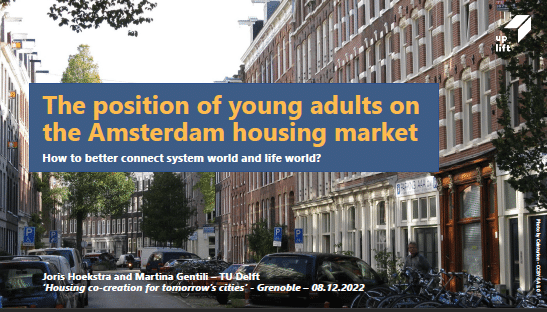
Online seminar on economic competitiveness and social cohesion
Ábel Csathó from TÁRKI and Éva Gerőházi from Metropolitan Research Institute presented the findings on linking economic competitiveness and social cohesion of European cities on the 22 of November 2022 in an on-line seminar organised by the UPLIFT project.

“Perspectives on Youth” seminar
Márton Medgyesi (TÁRKI Social Research Institute) presented results from the UPLIFT project entitled “Young people’s autonomy” at the “Perspectives on Youth” seminar, organised between 7-9 November 2022, by the European Commission and the Council of Europe at the European Youth Centre Budapest, in Hungary.
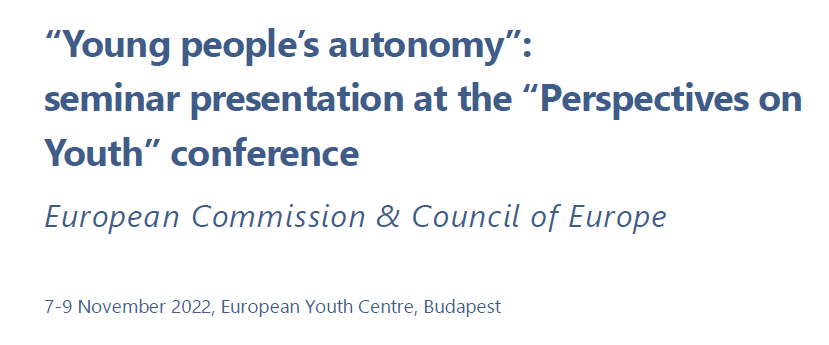
Article: The main factors influencing life-satisfaction of young people in urban areas of Europe
UPLIFT researchers Márton Medgyesi and Ábel Csathó (TÁRKI, Hungary) published an article in Hungarian journal, Társadalmi Riport 2022, on how the life-satisfaction of young people in urban areas is influenced by the local economic environment and social welfare system.
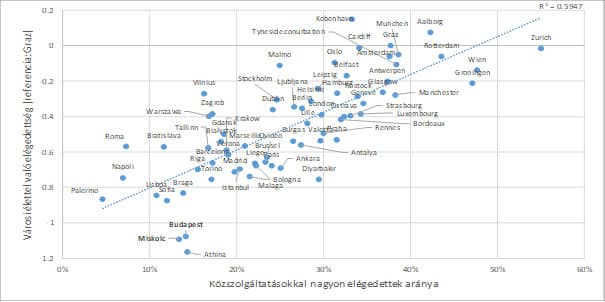
Article: How is economic development within different regions of Hungary reflected in housing prices?
József Hegedüs (Metropolitan Research Institute) published an article with Judit Székely (Central Statistical Office of Hungary) on recent trends in housing prices, and their links to development levels of different regions of Hungary.
